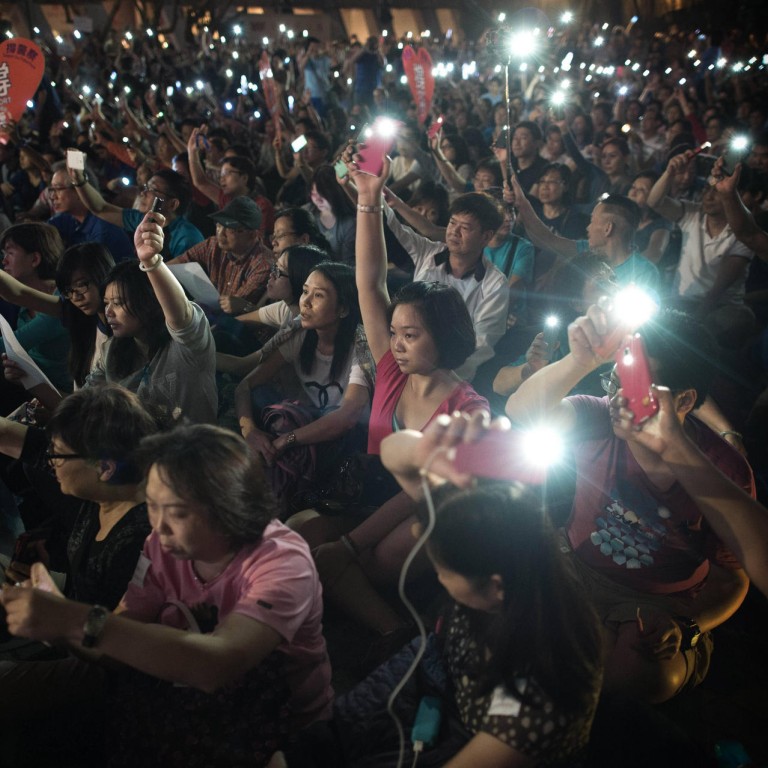
Diplomats walk a fine line as Hong Kong protests grip world's attention
As Hong Kong's unprecedented civil disobedience movement enters its fifth week, the city's diplomats find themselves in a unique, yet tricky, position.
To a diplomat, taking care with words should be second nature. But as Hong Kong's unprecedented civil disobedience movement enters its fifth week, the city's diplomats find themselves in a unique, yet tricky, position.
The Occupy Central movement that has gripped the world has given the 61 consulates in one of the busiest diplomatic hubs an even higher profile. But diplomats must tread a fine line as local and central authorities speak darkly of unspecified "foreign interference".
"The consulates need to be here even more in order to report back," University of Science and Technology political science professor David Zweig said.
But the situation was complicated by Chief Executive Leung Chun-ying's vow last week to unmask "foreign forces" behind the protests, amid allegations Occupy organisers had been funded by overseas organisations.
The approached scores of diplomats for their views, though most refused to comment on such a sensitive topic. Those who did spoke only on condition of anonymity.
One diplomat was highly critical of Leung's failure to back up his comments with evidence. "You have to immediately show proof otherwise you lose credibility," the diplomat said.
READ MORE: To view all the latest Occupy Central stories click here
Zweig said diplomats had to be careful to avoid being accused of meddling in what Beijing calls China's "internal affairs".
Consular sources said a number of senior diplomats recently met the top representative of Beijing's Foreign Ministry in the city, Song Zhe, to discuss Occupy. The ministry could not be contacted to confirm the meeting.
"They wanted to know our opinion," one consular official said. "It's very wise because at the same time, they had the opportunity to tell us what they think."
A spokesman for the Hong Kong government's protocol division said it had received concerns from consulates based in Admiralty about access.
Professor Jean-Pierre Cabestan, head of government and international studies at Baptist University, said the protests had put diplomats at the centre of a historic period for the city.
"It has made their job more colourful … since it is a great time for them … to assess the changing limits and contours of the famous 'one country, two systems' formula," he said.
"A Hong Kong that is more antagonistic to China makes the place more of a diplomatic hub and gateway to China, a city where it is important to be, to exchange ideas, observe debates and assess the implications for the future of China."
In the first few days of Occupy, the Foreign Ministry sent a directive to all consulates advising their staff to stay away from protest sites. A number of diplomats who spoke to the said the move was unusual.
"It's certainly not up to the consulate to tell staff to participate or not," one senior diplomat said, adding that they had "never before" received such a letter, and the sentiment was shared across the city's consular corps.
Another consular official said: "The short-term issue is universal suffrage, but underneath that is a much more important problem: disaffection. I totally sympathise with the students. Civil disobedience is a right, even though it might not be legal."
One envoy said it was hard to predict how the protests might affect the city's role as a diplomatic hub: "But it does show that people want to do something with their lives, and not just stay at home and play video games."
Another said the protests would have a positive impact on how the city was viewed. "Demonstrations like this, we can only dream of in our countries," the diplomat said of the peaceful campaign.
One consular official said they sympathised with the protesters: "I understand Beijing cannot change their decision but I hope Beijing will listen carefully."
Another envoy said: "We, as diplomats, are never going to interfere. But we … live here, we are part of Hong Kong and … we express our sympathy with the people without constraint."
Still, most consulates preferred to keep silent.
"There is a concern that any comments will be interpreted in the wrong way," one senior diplomat said. "We are observers; not newspaper columnists".
